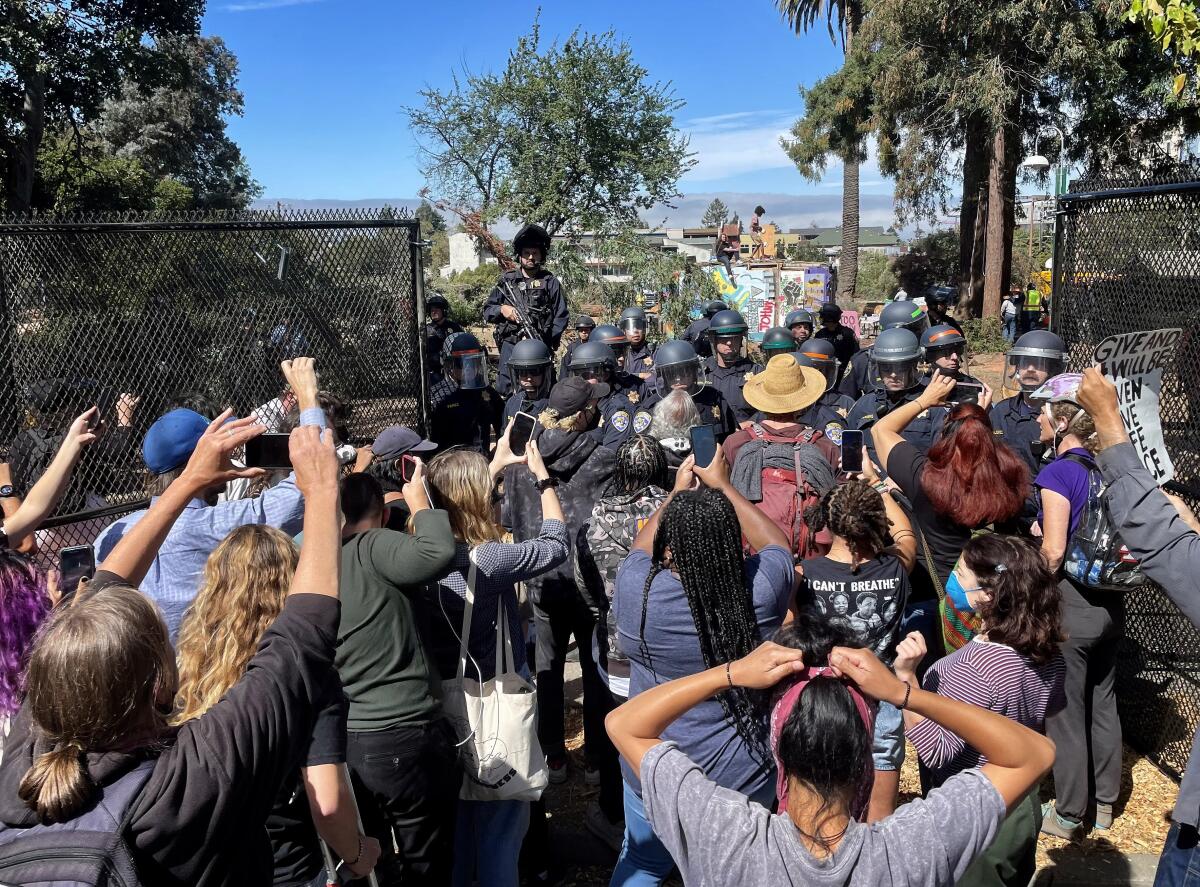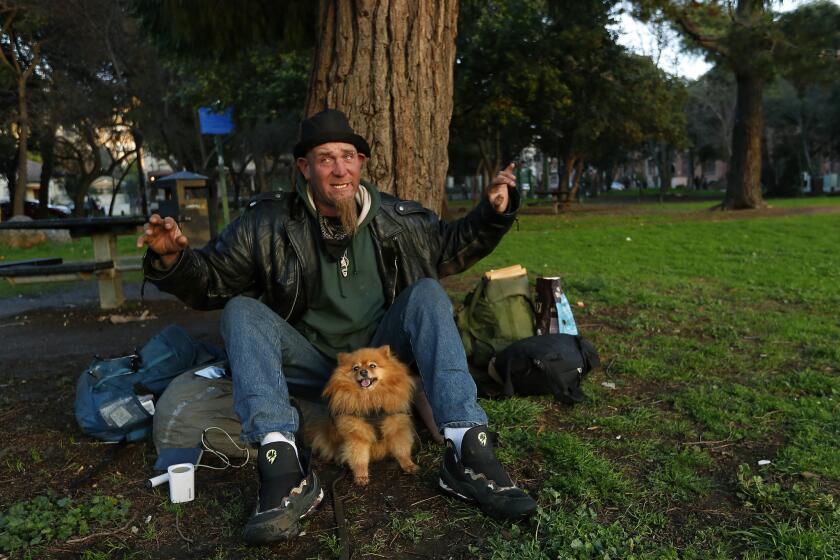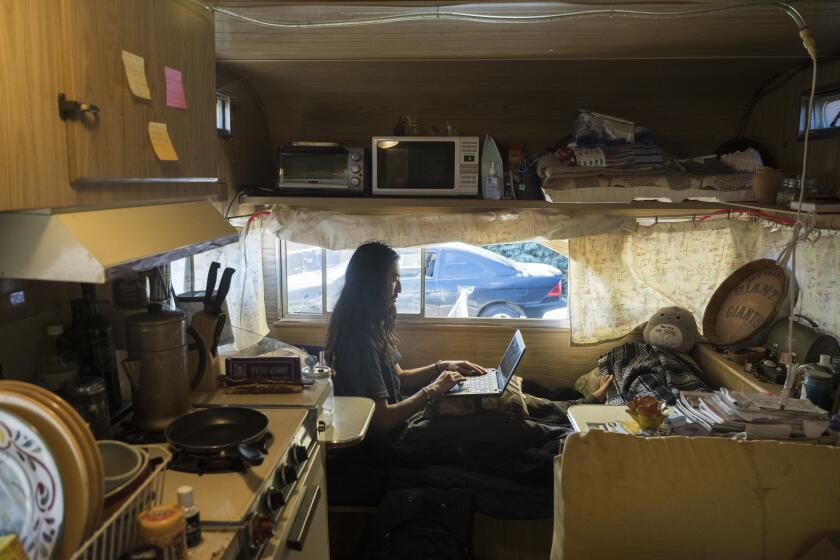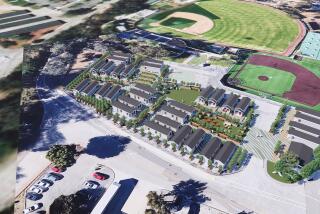Court ruling halts UC Berkeley from building student housing at People’s Park

A state appellate court has issued a final ruling that stops UC Berkeley from building badly needed student housing at People’s Park and opens controversial new paths to block development using the state’s environmental law.
UC Berkeley said it would appeal the ruling to the state Supreme Court and reiterated its commitment to reshape the park into a space for student dorms and supportive housing for low-income residents. The plan also includes the creation of a commemorative display honoring the park’s iconic legacy of free speech and civil rights and an open space with landscaping and trees.
In a decision issued Friday evening, the court said University of California regents need not abandon the People’s Park project but must return to the trial court and “fix the errors” in the environmental review.
Two nonprofits had filed a lawsuit to stop the plan, saying it would rob neighbors of green space, damage the park’s historic value and bring more noise and other disruptions to the area.
The legal controversy marks the latest struggle over the historic park, which became a national symbol of people power in 1969, when hundreds objected to university plans to develop it and claimed it as their own space. After UC fenced the public out a few weeks later, thousands of protesters marched to the site and a bloody battle ensued when law enforcement pushed them back with tear gas and buckshot. But over the decades the once vibrant community gathering spot deteriorated, marred by trash, rats and crime.
UC Berkeley Chancellor Carol Christ unveiled a plan in 2018 to redesign the park to provide about 1,100 student beds, along with 125 beds for lower-income and formerly unhoused people. The Berkeley campus houses only 23% of its students, by far the lowest percentage in the 10-campus UC system. Berkeley is a stark example of the acute shortage of affordable campus housing, a crisis of homelessness and instability for students throughout the state.
But the 1st District Court of Appeal in San Francisco has now halted the People’s Park project.
It ruled that the California Environmental Quality Act, known as CEQA, required developers to analyze and mitigate a project’s potential noise — in this case the noise generated by students who may drink, yell and hold “unruly parties,” as some neighbors have complained in documents submitted to the court.
UC Berkeley “failed to assess potential noise impacts from loud student parties in residential neighborhoods near the campus, a longstanding problem that the [environmental review] improperly dismissed as speculative,” the final ruling said.
The appellate court also ruled that the campus failed to justify its decision not to consider alternative locations to the People’s Park project. UC attorneys had argued that because the project’s aim was to repurpose the park itself, no alternative would suffice.
The court did reject the project opponents’ argument that UC should have analyzed how its projected population growth could drive up housing prices, displace residents, increase homelessness and affect the environment.
UC Berkeley, in its long-range development plan, projected population growth through 2036-37. It estimated that it would add about 13,900 students, faculty and staff who would live in campus housing and about 8,200 more without it.
“The theory may appeal to common sense, and it may ring true in a region with crazy housing costs and rampant homelessness,” the court said. But it found that opponents failed to present evidence or expert opinion that their feared outcomes would occur.
UC Berkeley denounced the ruling.
“The campus is dismayed by this unprecedented and dangerous decision to dramatically expand CEQA, and the campus will ask the California Supreme Court to overturn it,” the school said in a statement.
“Left in place, this decision will indefinitely delay all of UC Berkeley’s planned student housing, which is desperately needed by our students and fully supported by the City of Berkeley’s mayor and other elected representatives,” the statement said. “This decision has the potential to prevent colleges and universities across the State of California from providing students with the housing they need and deserve.”
The campus also said the ruling “bestows new privileges and power to the privileged and powerful by arming NIMBY neighbors with additional weapons to obstruct the development of all new urban housing, impeding the construction of housing not just for students but also for the unhoused and low-income families.”
Thomas Lippe, attorney for the two nonprofit groups that brought the lawsuit against UC, could not immediately be reached for comment. Make UC a Good Neighbor was founded in 2019 by local preservationists and the People’s Park Historic District Advocacy Group was formed to keep the park’s open space and the historic character of the neighborhood, organizers said.
Earlier this year, Lippe told The Times that criticism that the ruling will allow project opponents to “weaponize” CEQA to keep out people deemed undesirable was “overblown rhetoric, not based in reality.” He also said that state laws protect against housing discrimination and that state environmental law offered a democratic way for people to know the environmental consequences of their government’s decisions on them before they are made.
Harvey Smith, president of the People’s Park Historic District Advocacy Group, praised the court decision. He said his members are not “privileged and powerful” NIMBY neighbors but advocates from throughout Berkeley and beyond who want to maintain open space in the dense city and preserve a vital historic and cultural site listed on the National Register of Historic Places. He blamed UC Berkeley for letting the park deteriorate and said the campus should never have selected the site for housing, knowing it would unleash passionate opposition.
“We want UC to build student housing, just not in a totally inappropriate location,” Smith said in an email Saturday.
Lippe added that the ruling would not stop the People’s Park project but only delay it until UC did the analyses he argued should have been done in the first place.
The noise issue had become one of the case’s biggest flash points. Though the law requires an analysis of potential noise generated by a stadium project, for instance, the ruling marked the first time a court held that the behavior of a particular group of people whom a housing development might bring into a neighborhood must be assessed, according to University of California attorneys.
UC and others, including student leaders, lawmakers and progressive law professors, had argued that such a ruling could be used by residents to stop people seen as undesirable from moving into their neighborhoods.
As most University of California campuses start classes this month, the acute shortage of affordable housing is pushing many students into desperation, including living in trailers or working multiple jobs to cover high rents.
“This would make CEQA a dangerous and powerful tool for any neighbor that does not like the social habits and customs of potential new residents,” Nicole Gordon of the Sohagi Law Group, which is representing UC, argued in a Jan. 3 letter to the court. “It is unfortunately easy to imagine this new ‘CEQA impact’ being applied to perpetuate prejudice and stereotypes.”
In its ruling, the court said it agreed that legislators never intended the environmental law to be used as a “redlining weapon by neighbors who oppose projects based on prejudice rather than environmental concerns.”
But it took UC officials to task for failing to analyze how much noise hundreds of students living in People’s Park might generate. The ruling said project opponents had submitted substantial evidence that loud parties and other disruptions had been a longtime problem and that UC Berkeley itself had worked with the city to try to mitigate it.
“The Regents must analyze the potential noise impacts relating to loud student parties. Their decision to skip the issue, based on the unfounded notion that the impacts are speculative, was a prejudicial abuse of discretion and requires them now to do the analysis that they should have done at the outset,” the court said.
As UC Berkeley appeals the ruling, one state legislator has introduced a bill to prevent the use of the state environmental law to block housing developments on the same grounds as used with the People’s Park project. AB 1700 would specify that population growth and noise impacts of a housing project are not an “effect on the environment for purposes of the state environmental law.”
“CEQA is being abused to block student housing. I’ve introduced #AB1700 to make sure this doesn’t happen again,” Assemblyman Josh Hoover (R-Folsom) said in a tweet about the court decision Friday night.
More to Read
Sign up for Essential California
The most important California stories and recommendations in your inbox every morning.
You may occasionally receive promotional content from the Los Angeles Times.













